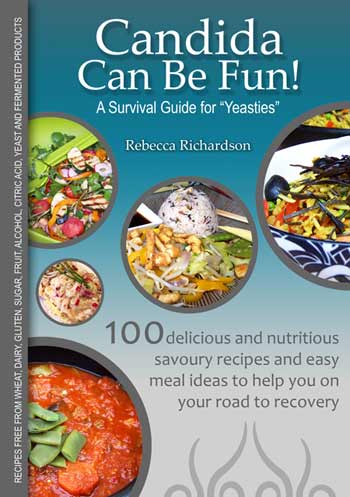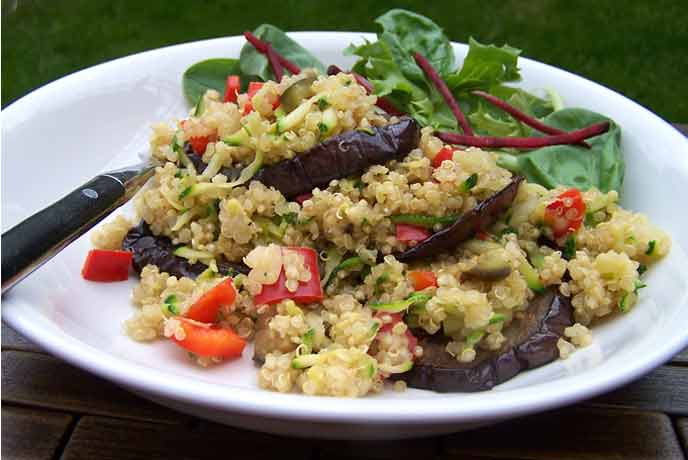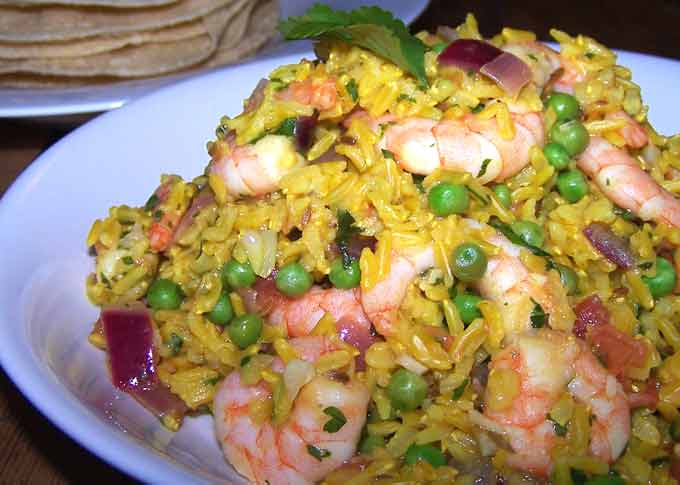|
|
‘Candida Can Be Fun!’ by Rebecca Richardson
|
‘Candida Can Be Fun!’ is an essential survival guide and specialist ‘free from’ cookbook written by someone who knows what it is like to suffer from Candida-related symptoms. After many years of unexplained health issues, Rebecca Richardson finally found the answer she was looking for when she went to see a Qualified Nutritionist about her ailments. She was diagnosed with an overgrowth of Candida and food intolerances. Relieved to find out that there was an actual name for what was wrong with her, she went about the arduous task of tackling her problems with a rigid diet (no wheat, gluten, dairy, sugar, fruit, yeast, nuts and fermented products) and a recommended supplement plan. After experiencing the ups and downs of the anti-Candida diet for herself, she decided to write this humorous, fully colour illustrated cookbook to share with others exactly what you CAN eat and how to get yourself back on the road to good health. If you suffer from recurrent thrush, cystitis, digestive disorders and/or other random health issues that a Doctor cannot explain or diagnose, then this book is for you. However, you don't have to suffer from an overgrowth of Candida to enjoy the tasty recipes. There is something for everyone: meat eaters, fish eaters, vegetarians and vegans. The meals are also suitable for coeliacs, diabetics, dairy intolerants and those who have a compromised immune system (ME, CFS, Fibromyalgis, HIV and Cancer sufferers). Havng doen her researchout there, Rebecca says that she can find no other cookbook out there that is 'free-from' ALL of the food groups to which candida sufferers, and so many of those other food intolelrants, find problematic. 'Candida Can Be Fun!' is self-published @ £19.99 and is available from www.candidacanbefun.co.uk or from Amazon.
Aubergine Roast with Quinoa
It’s always a challenge to cook for someone who is vegetarian or vegan, let alone without the use of mushrooms and cheese, so you can impress your friends with this delicious meal! Serves 2 – 3 1 medium aubergine (trimmed and cut into 1cm thick rings) Prepare the aubergine by trimming both ends. Slice into 1½ cm thick rings and rub liberally with sea salt.
King Prawn Indian Lemon Rice
If you do not eat fish, you can always substitute the prawns with a pulse of your choice instead. It will be just as tasty. Serves 3 – 4 225g (8oz) of brown basmati rice In a large pan with a lid, pour in about 1½ pints of boiling water, a small drop of oil and the turmeric. |










